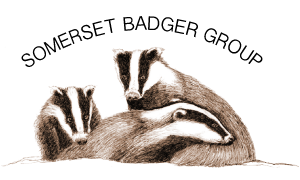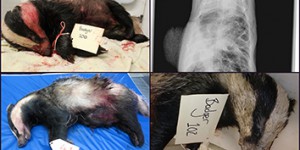Badger Culls
plans for further roll out in 2016/2017
What you should know
Natural England has received 29 applications or expressions of interest for a badger control licence. These cover areas ranging from 135 km2 to 655 km2 (with the average area being approximately 330 km2) within the counties of Cheshire, Cornwall, Devon, Dorset, Gloucestershire, Herefordshire, Somerset, Wiltshire and Worcestershire.
In 2013 two pilot badger cull areas in Somerset and Gloucestershire were set up to test whether free shooting of badgers was humane, effective and safe. An Independent Expert Panel (IEP) was set up to report on the findings. It concluded the culls were both inhumane (up to 18% of badgers taking more than 5 minutes to die) and ineffective.
For 2014 the Government disbanded the IEP. This resulted in very limited independent monitoring with breaches of guidelines relating for example to biosecurity and shooting safety witnessed by badger protectors patrolling the cull areas. In Gloucester they failed to kill the minimum number of badgers, so were again ineffective.
In 2015 despite the fact that scientists did not support the culls; despite research suggesting badgers were only responsible for 6% of transmission of bTB to cattle; despite the huge cost of the culls; despite the IEP and British Veterinary Association (BVA) ruling that shooting free running badgers was inhumane, the cull was rolled out to Dorset even though the incidence of bTB in cattle in Dorset was falling.
- TOTAL BADGERS KILLED SO FAR – 3961 (how many more were wounded and died unrecorded)
- TOTAL COST OF POLICING SO FAR – £6,500,000
- TOTAL ESTIMATED POTENTIAL COSTS SO FAR – £26,500,000
Only 4 badgers were officially tested for bTB – 1 tested positive. Badgers 41, 102 and 200 were found shot during the culls. They were tested and found free of bTB
Many thousands more badgers will die with no evidence that these culls will reduce bTB in cattle and many millions of tax payers’ money will be wasted. This money could be better spent on supporting farmers when they have bTB breakdowns and to improve on-farm biosecurity; improved movement controls, the accuracy of testing, supporting badger vaccination and progressing cattle vaccination.
WHAT YOU CAN DO
Attend marches and public meetings, join like minded, caring people to help protect badgers, help raise awareness and write to your MP.




